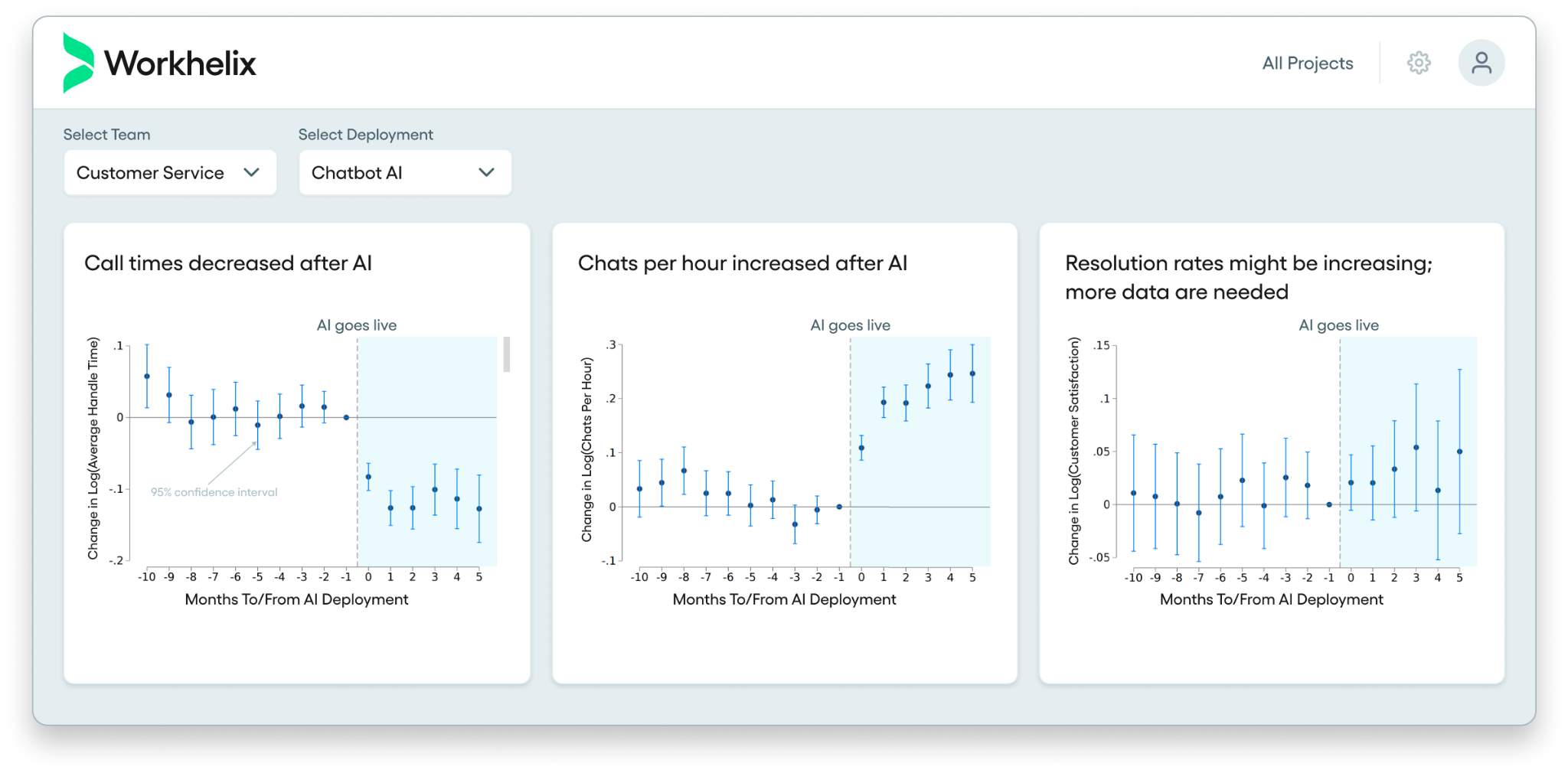You've launched AI. Now lead it with confidence. Know exactly where it's having the biggest impact, what it's delivering, and what to prioritize next.




We help you track how AI is being adopted, measure what it's returning, and find where to go deeper. So every dollar you spend is one you can account for.
Get a demoMeet Nucleus: the enterprise platform behind your AI ROI
This is how you get the answers. Nucleus connects your workforce data and AI usage history to give you a clear prioritized view of:
Your biggest opportunities — ranked by potential impact so you invest where it matters
Your hidden superusers — who they are and what makes them effective
The gaps you're missing — where AI should be used more heavily but isn't
Your estimated savings — how much time and money AI is saving you today
No guesswork. Just the data to know exactly where to focus and invest with confidence.







Workhelix has helped Nasdaq evaluate and quantify AI's impact across the company, leveraging deep, role‑level analytics to identify impact, capture value, and unlock new growth opportunities.
Michael O'Rourke, SVP of AI and Machine Learning Engineering


Erik Brynjolfsson
Co-Founder & Co-Chairman of the Board
Erik is the Director of the Stanford Digital Economy Lab, a Professor at the Stanford Institute for Human-Centered AI, and a Research Associate at the National Bureau of Economic Research. Brynjolfsson is among the most cited researchers in information and economics and his work has been recognized with Ten Best Paper awards and five patents.

Andrew McAfee
Co-Founder & Co-Chairman of the Board
Andrew is the Co-Director of the MIT Initiative on the Digital Economy and also the Principal Research Scientist at the MIT Sloan School of Management. Throughout his career at MIT and Harvard, he has studied how digital technologies are changing the business world. He has advised many companies, governments, and international organizations.

James Milin
Co-Founder and CEO
James brings experience and DNA from top technology firms including Google and Amazon. He previously co-founded a venture-funded AI platform business in the Bay Area and was a founding member of the AWS Private Equity sales team. He has spearheaded digital transformations and cloud migrations for hundreds of mid-market and enterprise customers.

Daniel Rock
Co-Founder and Director of Research
Daniel is an Assistant Professor at the Wharton School at the University of Pennsylvania. His research focuses on the economic impact of digital technologies on markets, companies, and the Future of Work. Daniel received his Ph.D. from MIT and is a research fellow at MIT and Stanford.